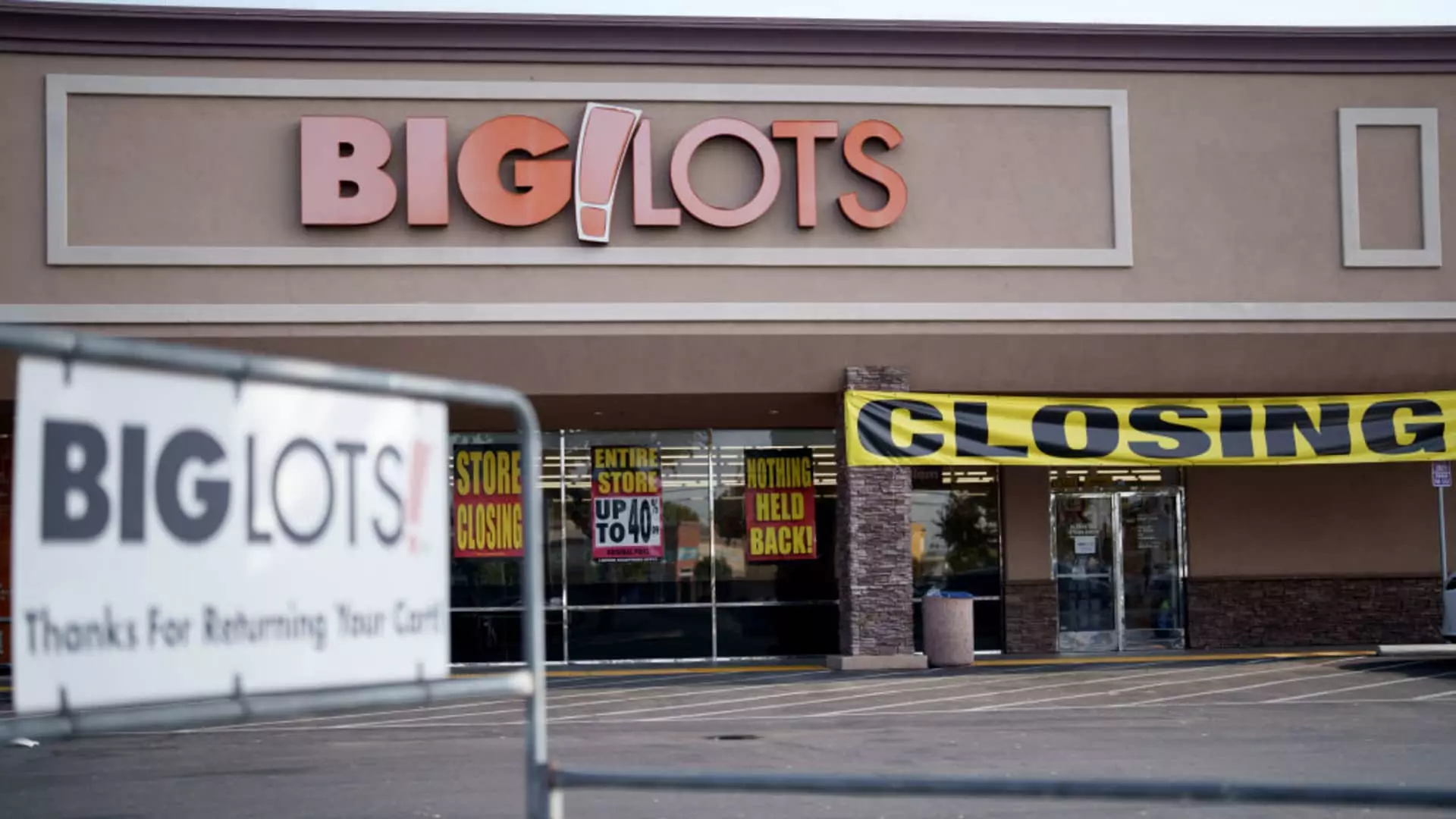Discount home goods retailer Big Lots recently filed for bankruptcy protection due to a combination of high interest rates and a sluggish housing market. The company, known for its low-priced furniture and decor, agreed to sell its business to private equity firm Nexus Capital Management for approximately $760 million. This deal includes $2.5 million in cash along with its remaining debt and liabilities. Big Lots, which operates over 1,300 stores across 48 states, has seen a decline in sales following a drop in demand for home furnishings post-pandemic.
In an effort to stabilize its financial situation, Big Lots revealed plans to close nearly 300 stores as part of its restructuring process. This decision aims to enhance the company’s balance sheet and reduce costs moving forward. Despite the store closures, Big Lots assured customers that its operations will continue as usual. CEO Bruce Thorn expressed optimism about the future, stating that the company is committed to providing extreme bargains and an outstanding customer experience. However, the road ahead remains uncertain as Big Lots navigates through this challenging period.
Apart from economic factors, Big Lots faces tough competition in the retail sector. The company operates in a highly competitive space and has struggled to distinguish itself from other discount retailers such as Wayfair, Walmart, and TJX Cos.’ Home Goods. Neil Saunders, managing director of GlobalData, criticized Big Lots for not always offering good value for money. He pointed out that many items sold by the retailer can be found cheaper elsewhere, leading to an unsatisfactory shopping experience for consumers. Additionally, the lack of a clear assortment and overabundance of choices have hindered Big Lots’ ability to attract and retain customers.
As part of the bankruptcy proceedings, Big Lots will conduct a court-supervised auction for its business. While the deal with Nexus Capital Management is currently on the table, other potential buyers may enter the bidding process if they offer a higher price. The company has enlisted the help of legal and financial advisors, including law firm Davis Polk & Wardwell, investment bank Guggenheim Securities, and advisory firm AlixPartners. A&G Real Estate Partners and law firm Kirkland & Ellis will represent Big Lots and Nexus Capital Management, respectively. The outcome of the auction will determine the future of Big Lots and its place in the retail industry.
Big Lots’ recent bankruptcy filing sheds light on the challenges faced by discount retailers in a rapidly changing economic landscape. The company’s struggles with declining sales, fierce competition, and internal issues have culminated in this critical juncture. As Big Lots navigates through the bankruptcy process and seeks a new buyer, the road ahead remains uncertain. Only time will tell if the company can overcome its obstacles and emerge stronger from this ordeal.

